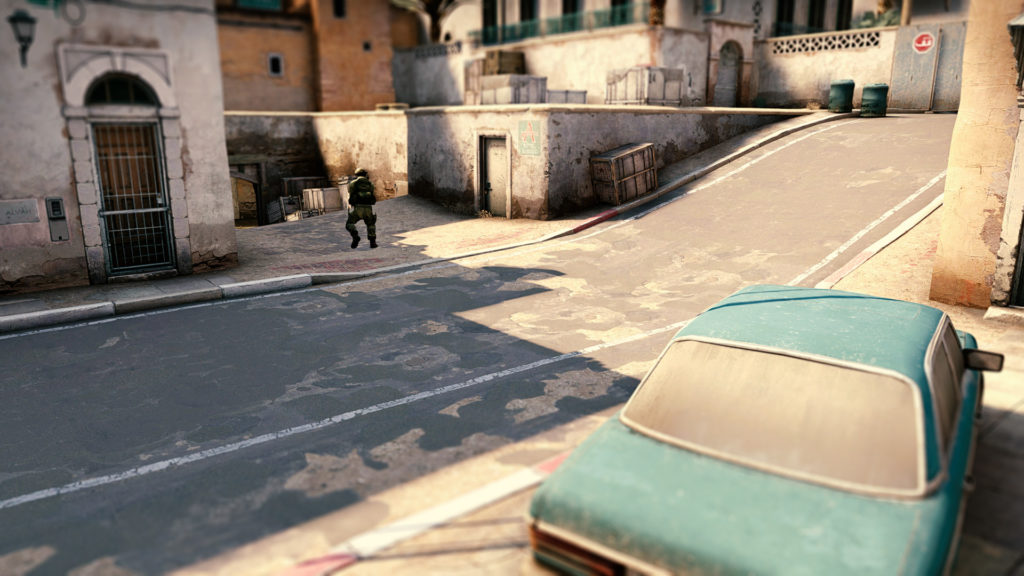When you think about it, there really aren’t any tools that will help you develop a proper mindset in CS:GO. There are aim maps, retake maps and ways you can help your own mechanical skills. But the only way you can improve upon your mental skills is by playing the game.
Our brains aren’t conditioned to use critical thinking while playing video games. Everyone is initially taught that games are meant to be played to have fun without any thought put into it.
In this article, I want to explore the idea of mindset in CS:GO to help you overcome one of the biggest potential hurdles to your own success: yourself.
Don’t Be An Ego
One of the biggest hindrances to improvement is simply ego.
Ego prevents you from understanding your own mistakes and can lead to immense frustration. Here is an example: let’s say someone in college has a group of friends who play Counter Strike. This person just so happens to be better than the rest of his friend group. Their friendship group starts calling the person the “good” Counter Strike player of the group. They then get excited over being called that and hop into a ranked match confidently. They then proceed to get destroyed by opponents that are better than them.
This player might, whenever they die, start saying things in their head like “Wow that guy got lucky” or “Wow, I can’t believe this game did this to me.” They don’t try to understand what goes on when they die because they have developed an ego from being the best player in their friendship group.
This player has a mindset focused on winning instead of learning. They may even feel like they “have” to win or they won’t be able to keep their title. See how this can be frustrating? Many players I have seen even attribute their skill in-game to their own self-worth. If they aren’t good at the game, then what are they even good at?
It is extremely easy to fall into this sort of mental trap. Everyone does it at least once in their life, and yes, you know who you are.
Compare this mentality to the mentality you have when you just installed the game. You know nothing about it, and have everything to learn. You want to learn how to aim better. You want to learn what positions are optimal. You want to learn movement, etc. When you die, you ask yourself “why did that happen?” and “what could I have done better?”
Put yourself in the shoes of someone who doesn’t understand what’s going on and use that to understand what is going on. No matter how much experience you have, there will always be something to improve on. This is obvious when you say it out loud, but are you really asking the questions you need to improve? Are you asking why you died?
Understanding Player Habits
Asking questions is the basic premise of understanding what your opponents are doing.
First, take one round and isolate it. Ask where your opponents went that round, where they died, and where your teammates were when they died.
A basic example is Inferno down Banana CT side. Say they didn’t molly car, so I took a quick peek down Banana, prefired and got a kill. What are some potential things we can learn here?
One would be their reaction to their teammate getting killed. Do they slow down their push (Many low Elo players tend to halt their approaches and hesitate when their teammates die)? Do they hold car in case I re-peek? Do they keep rushing in?
Let’s say I get the information that they halt their approach. The question now becomes: what should I do with this knowledge?
Show Some Respect!
One of the basic mistakes you can make at this point is to disrespect your opponent.
Let’s return to our hypothetical scenario. An example of disregard for respecting my opponents would be to re-peek down Banana and get myself killed. I wouldn’t be respecting that my opponents could be holding the angle or could simply trade me.
At the beginning of games, always respect that your opponents will kill you for attempting to make a play. This doesn’t mean to be scared of opponents. It just means to play as optimally as possible until you are given additional information that could justify you making a decision.
It’s kind of like saying your opponents are innocent until proven guilty. You have to respect them until they show some sort of weakness or opportunity that you can exploit in the later rounds. If you don’t respect your opponents, you will be giving them free frags and free opportunities.
Let’s return to our hypothetical. Instead of re-peeking, let’s say I put a smoke down Banana instead, which allows me to respect my opponent and look down from car again seeing if they won’t molly it again. Say they go down the Banana again and I am able to get a frag or two before retreating. This means that they aren’t adapting to what I am doing, and therefore, this weakness is now a habit.
If your strategy works, don’t try to change it. Let’s say I continue to hold down Banana with an awp and they don’t do anything about it. Maybe eventually they get around to mollying car.
At that point, I ask similar questions. What did they do to counter what I did? What can I do to stay in control of the scenario? Then, go back to playing optimal positions until you find another opportunity.
This is a very basic scenario. You can expand on it by throwing in teammates flashing you in, throwing counter mollies, etc. But the principles remain the same: carefully consider what your opponent is doing so that you can gain the psychological edge against them.
Creating Opportunities
Remember that opportunities can’t be made by forcing fights. Opportunities have to be created.
This can be achieved through the use of well-timed utility to catch your opponents off guard or by countering what you see your opponents doing.
Make the game as easy as possible for you to play and frag. Think of every engagement you take without utility or some form of advantage as a 50/50. You want to increase your odds as much as possible using any means necessary. Don’t let that extra flash you have in your inventory just sit there.
Also, remember to always be prepared for what kind of counterplay your opponents can come up with as well. This, much like countering your opponents, can be done by asking even more questions. Questions like “What did they do to kill me?” or “How are they getting control of this?”
Imagine it like a sort of conversation. Your opponents say they are going to do x. What is your response? What will their response to that be?
In-game leaders should specifically be paying attention to the entire team and what is going on in each round. Information should constantly be relayed within teams. Professional players are always thinking about how they can create opportunities. They are also to the point that they need to force mistakes out of their opponents. Players at the highest calibre don’t make mistakes by themselves.
I hope these points have helped and if you’re interested in getting more personalised feedback on your game and how to improve at CSGO then feel free to message me on Discord or book a coaching session with me from my profile!





